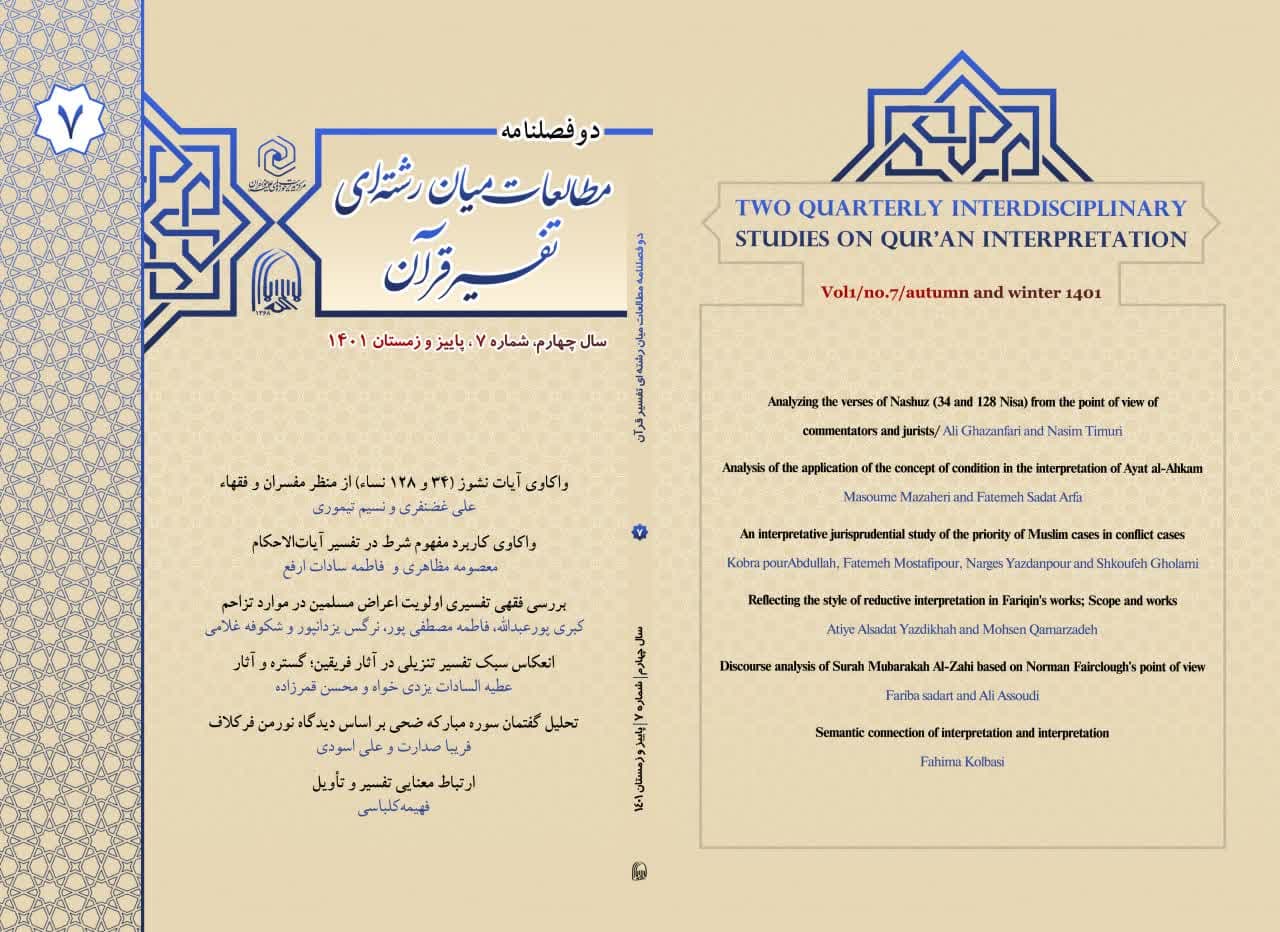Analyzing the verses of Nashuz (43 and 821 Nisa) from the point of view of commentators and jurists
Document Type : Original Article
Authors
1 quran
2 Kosar Seminary
Abstract
Nashuz is the departure of a husband or wife from performing the obligatory duties that God Almighty has placed on each of them in relation to the other. According to verses 30 and 128 of Surah Al-Nisaa, nashuz is not reserved for women, but if a man neglects to fulfill his obligatory duties such as alimony, obligatory co-sleeping, and the right to share, it is considered nashuz. This is despite the fact that some commentators consider Neshuz to be equal to disobedience and attribute it only to women. In this article, while examining various aspects of this issue, the researcher has addressed the importance that not every non-compliance is a bad thing and what makes a woman unfit is the refusal to comply. In addition to ignoring men's death, its consequences and effects, as well as the ways to deal with it, are not taken into consideration as much as they should be. Therefore, this summary tries to use a library and explanatory-analytical method by counting the opinions of the commentators who have interpreted these verses and related traditions, and by looking at the jurisprudential and legal opinions, by explaining the true meaning of Nashuz and determining the limits and gaps and consequences. and its Quranic solutions to achieve a more comprehensive view of Neshuz.
Volume 4, Issue 7 - Serial Number 7
January 2023Pages 5-27
- Receive Date: 25 April 2024
- Accept Date: 25 April 2024
- First Publish Date: 25 April 2024
